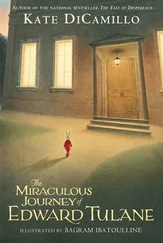Edward Forster - The Longest Journey
Здесь есть возможность читать онлайн «Edward Forster - The Longest Journey» весь текст электронной книги совершенно бесплатно (целиком полную версию без сокращений). В некоторых случаях можно слушать аудио, скачать через торрент в формате fb2 и присутствует краткое содержание. Жанр: Классическая проза, на английском языке. Описание произведения, (предисловие) а так же отзывы посетителей доступны на портале библиотеки ЛибКат.
- Название:The Longest Journey
- Автор:
- Жанр:
- Год:неизвестен
- ISBN:нет данных
- Рейтинг книги:5 / 5. Голосов: 1
-
Избранное:Добавить в избранное
- Отзывы:
-
Ваша оценка:
- 100
- 1
- 2
- 3
- 4
- 5
The Longest Journey: краткое содержание, описание и аннотация
Предлагаем к чтению аннотацию, описание, краткое содержание или предисловие (зависит от того, что написал сам автор книги «The Longest Journey»). Если вы не нашли необходимую информацию о книге — напишите в комментариях, мы постараемся отыскать её.
The Longest Journey — читать онлайн бесплатно полную книгу (весь текст) целиком
Ниже представлен текст книги, разбитый по страницам. Система сохранения места последней прочитанной страницы, позволяет с удобством читать онлайн бесплатно книгу «The Longest Journey», без необходимости каждый раз заново искать на чём Вы остановились. Поставьте закладку, и сможете в любой момент перейти на страницу, на которой закончили чтение.
Интервал:
Закладка:
He advanced into love with open eyes, slowly, heavily, just as he had advanced across the drawing room carpet. But this time the bride did not observe his tread. She was listening to her husband, and trying not to be so stupid. When he was close to her—so close that it was difficult not to take her in his arms—he spoke to Mr. Failing, and was at once turned out of Cadover.
"I'm sorry," said Mr. Failing, as he walked down the drive with his hand on his guest's shoulder. "I had no notion you were that sort. Any one who behaves like that has to stop at the farm."
"Any one?"
"Any one." He sighed heavily, not for any personal grievance, but because he saw how unruly, how barbaric, is the soul of man. After all, this man was more civilized than most.
"Are you angry with me, sir?" He called him "sir," not because he was richer or cleverer or smarter, not because he had helped to educate him and had lent him money, but for a reason more profound—for the reason that there are gradations in heaven.
"I did think you—that a man like you wouldn't risk making people unhappy. My sister-in-law—I don't say this to stop you loving her; something else must do that—my sister-in-law, as far as I know, doesn't care for you one little bit. If you had said anything, if she had guessed that a chance person was in—this fearful state, you would simply—have opened hell. A woman of her sort would have lost all—"
"I knew that."
Mr. Failing removed his hand. He was displeased.
"But something here," said Robert incoherently. "This here." He struck himself heavily on the heart. "This here, doing something so unusual, makes it not matter what she loses—I—" After a silence he asked, "Have I quite followed you, sir, in that business of the brotherhood of man?"
"How do you mean?"
"I thought love was to bring it about."
"Love of another man's wife? Sensual love? You have understood nothing—nothing." Then he was ashamed, and cried, "I understand nothing myself." For he remembered that sensual and spiritual are not easy words to use; that there are, perhaps, not two Aphrodites, but one Aphrodite with a Janus face. "I only understand that you must try to forget her."
"I will not try."
"Promise me just this, then—not to do anything crooked."
"I'm straight. No boasting, but I couldn't do a crooked thing—No, not if I tried."
And so appallingly straight was he in after years, that Mr. Failing wished that he had phrased the promise differently.
Robert simply waited. He told himself that it was hopeless; but something deeper than himself declared that there was hope. He gave up drink, and kept himself in all ways clean, for he wanted to be worthy of her when the time came. Women seemed fond of him, and caused him to reflect with pleasure, "They do run after me. There must be something in me. Good. I'd be done for if there wasn't." For six years he turned up the earth of Wiltshire, and read books for the sake of his mind, and talked to gentlemen for the sake of their patois, and each year he rode to Cadover to take off his hat to Mrs. Elliot, and, perhaps, to speak to her about the crops. Mr. Failing was generally present, and it struck neither man that those dull little visits were so many words out of which a lonely woman might build sentences. Then Robert went to London on business. He chanced to see Mr. Elliot with a strange lady. The time had come.
He became diplomatic, and called at Mr. Elliot's rooms to find things out. For if Mrs. Elliot was happier than he could ever make her, he would withdraw, and love her in renunciation. But if he could make her happier, he would love her in fulfilment. Mr. Elliot admitted him as a friend of his brother-in-law's, and felt very broad-minded as he did so. Robert, however, was a success. The youngish men there found him interesting, and liked to shock him with tales of naughty London and naughtier Paris. They spoke of "experience" and "sensations" and "seeing life," and when a smile ploughed over his face, concluded that his prudery was vanquished. He saw that they were much less vicious than they supposed: one boy had obviously read his sensations in a book. But he could pardon vice. What he could not pardon was triviality, and he hoped that no decent woman could pardon it either. There grew up in him a cold, steady anger against these silly people who thought it advanced to be shocking, and who described, as something particularly choice and educational, things that he had understood and fought against for years. He inquired after Mrs. Elliot, and a boy tittered. It seemed that she "did not know," that she lived in a remote suburb, taking care of a skinny baby. "I shall call some time or other," said Robert. "Do," said Mr. Elliot, smiling. And next time he saw his wife he congratulated her on her rustic admirer.
She had suffered terribly. She had asked for bread, and had been given not even a stone. People talk of hungering for the ideal, but there is another hunger, quite as divine, for facts. She had asked for facts and had been given "views," "emotional standpoints," "attitudes towards life." To a woman who believed that facts are beautiful, that the living world is beautiful beyond the laws of beauty, that manure is neither gross nor ludicrous, that a fire, not eternal, glows at the heart of the earth, it was intolerable to be put off with what the Elliots called "philosophy," and, if she refused, to be told that she had no sense of humour. "Tarrying into the Elliot family." It had sounded so splendid, for she was a penniless child with nothing to offer, and the Elliots held their heads high. For what reason? What had they ever done, except say sarcastic things, and limp, and be refined? Mr. Failing suffered too, but she suffered more, inasmuch as Frederick was more impossible than Emily. He did not like her, he practically lived apart, he was not even faithful or polite. These were grave faults, but they were human ones: she could even imagine them in a man she loved. What she could never love was a dilettante.
Robert brought her an armful of sweet-peas. He laid it on the table, put his hands behind his back, and kept them there till the end of the visit. She knew quite well why he had come, and though she also knew that he would fail, she loved him too much to snub him or to stare in virtuous indignation. "Why have you come?" she asked gravely, "and why have you brought me so many flowers?"
"My garden is full of them," he answered. "Sweetpeas need picking down. And, generally speaking, flowers are plentiful in July."
She broke his present into bunches—so much for the drawing-room, so much for the nursery, so much for the kitchen and her husband's room: he would be down for the night. The most beautiful she would keep for herself. Presently he said, "Your husband is no good. I've watched him for a week. I'm thirty, and not what you call hasty, as I used to be, or thinking that nothing matters like the French. No. I'm a plain Britisher, yet—I—I've begun wrong end, Mrs. Elliot; I should have said that I've thought chiefly of you for six years, and that though I talk here so respectfully, if I once unhooked my hands—"
There was a pause. Then she said with great sweetness, "Thank you; I am glad you love me," and rang the bell.
"What have you done that for?" he cried.
"Because you must now leave the house, and never enter it again."
"I don't go alone," and he began to get furious.
Her voice was still sweet, but strength lay in it too, as she said, "You either go now with my thanks and blessing, or else you go with the police. I am Mrs. Elliot. We need not discuss Mr. Elliot. I am Mrs. Elliot, and if you make one step towards me I give you in charge."
But the maid answered the bell not of the drawing-room, but of the front door. They were joined by Mr. Elliot, who held out his hand with much urbanity. It was not taken. He looked quickly at his wife, and said, "Am I de trop?" There was a long silence. At last she said, "Frederick, turn this man out."
Читать дальшеИнтервал:
Закладка:
Похожие книги на «The Longest Journey»
Представляем Вашему вниманию похожие книги на «The Longest Journey» списком для выбора. Мы отобрали схожую по названию и смыслу литературу в надежде предоставить читателям больше вариантов отыскать новые, интересные, ещё непрочитанные произведения.
Обсуждение, отзывы о книге «The Longest Journey» и просто собственные мнения читателей. Оставьте ваши комментарии, напишите, что Вы думаете о произведении, его смысле или главных героях. Укажите что конкретно понравилось, а что нет, и почему Вы так считаете.












